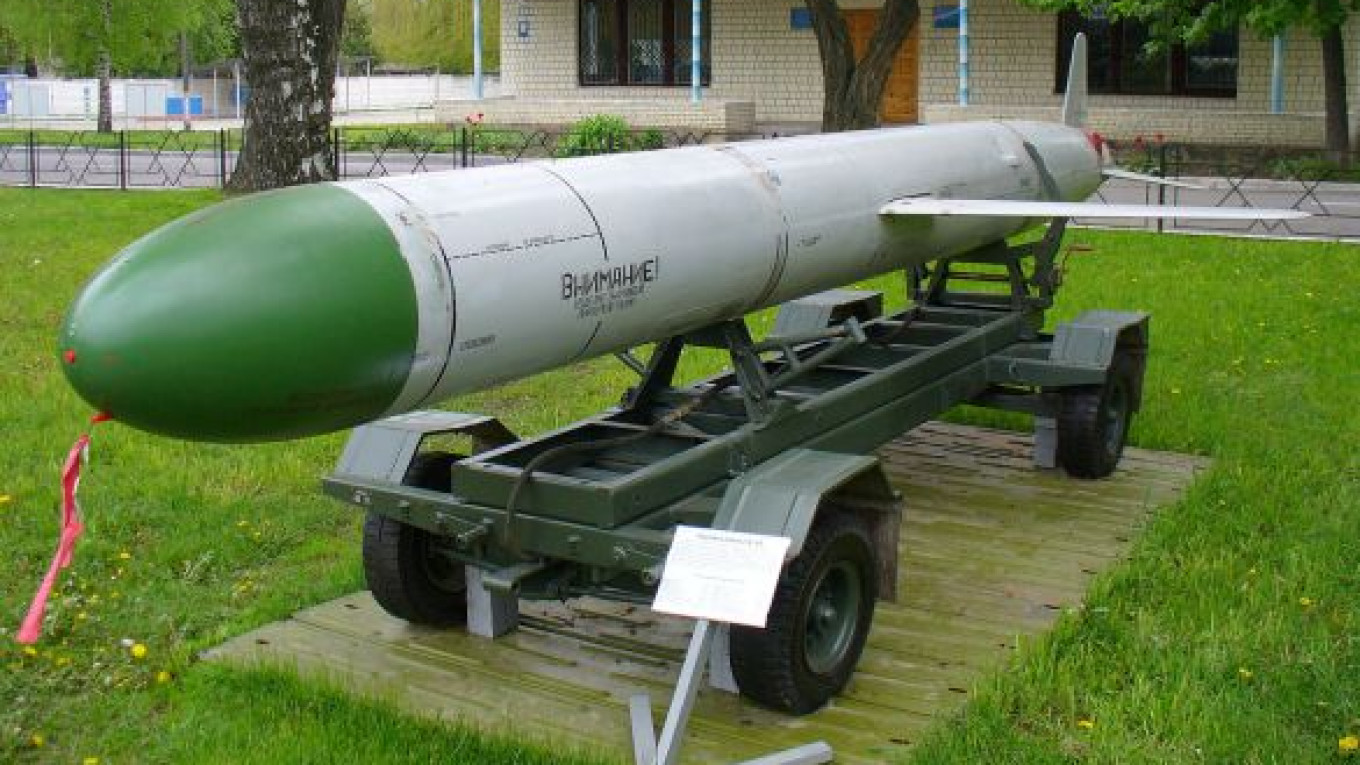NPO Saturn and state machine-building design bureau Raduga officially announced on Monday an agreement to manufacture cruise missile engines worth 4 billion rubles ($120 million).
The engines are intended for various ground, sea and air-based missiles, including the Kh-55 cruise missile installed on Tu-95MS aircraft.
"We plan to produce over 1,500 such engines per year," said Ilya Fyodorov, managing director of NPO Saturn.
Previous engines for strategic nuclear missiles were mostly made by Ukrainian manufacturer Motor Sich.
"Strategic air and sea-based missiles should not depend on other countries, even friendly states, for major parts supply. So we are now organizing local engine production," Fyodorov said.
He also said that the price of the new engine will be competitive with the Ukrainian equivalent while having better performance results in terms of fuel consumption and weight, which means missiles equipped with it will be able to travel longer distances.
The news followed a recent statement by Defense Minister Sergei Shoigu who said Russia was going to increase its stock of cruise missiles five-fold within the next three years.
"A long-term contract like the one we have signed will make it possible for us to plan ahead and to adjust our production facilities accordingly," Fyodorov said.
The contract is to be implemented over three years, from 2013 to 2015.
Saturn's new manufacturing program has grown 250 percent compared to the previous three-year production plan. It's factory in Rybinsk in Yaroslavl region will now start to produce missile engines at the rate it did before the collapse of the Soviet Union.
This is all a result of the government's strategy to substitute military imports with local production.
While the defense industry saw payment delays in the past, suppliers are now more satisfied with funding flow. "We do not have any problems with the defense ministry today, all contracts have been signed," Fedorov said.
Government officials have said that when local manufacturers lack the expertise to make a particular military component, they should endeavor to purchase the technology, not just the product itself. This is a key element of the Kremlin's stated goal of modernizing 70 percent of the military's hardware by 2020.
In 2010, state company Rosoboronprom signed a contract with Israel Aerospace Industries to assemble Israel's drones Searcher MkII and Bird Eye 400 at a factory in Yekaterinburg.
The locally assembled drones are now being called Forpost and Zastava. In 2011, the defense ministry signed a contract to supply 10 Forpost systems for a total of 9 billion rubles and 27 smaller Zastava systems.
"If we do not understand today that a new revolution in the way war is made has already happened — that it is done with high-precision weapon systems — we will miss this revolution the same way we missed drone systems and a lot more before," Deputy Prime Minister Dmitry Rogozin said at a defense conference organized by Rossiiskaya Gazeta at the end of June. "We cannot make a second mistake here or we will fall behind forever," he added.
Contact the author at [email protected]
A Message from The Moscow Times:
Dear readers,
We are facing unprecedented challenges. Russia's Prosecutor General's Office has designated The Moscow Times as an "undesirable" organization, criminalizing our work and putting our staff at risk of prosecution. This follows our earlier unjust labeling as a "foreign agent."
These actions are direct attempts to silence independent journalism in Russia. The authorities claim our work "discredits the decisions of the Russian leadership." We see things differently: we strive to provide accurate, unbiased reporting on Russia.
We, the journalists of The Moscow Times, refuse to be silenced. But to continue our work, we need your help.
Your support, no matter how small, makes a world of difference. If you can, please support us monthly starting from just $2. It's quick to set up, and every contribution makes a significant impact.
By supporting The Moscow Times, you're defending open, independent journalism in the face of repression. Thank you for standing with us.
Remind me later.


